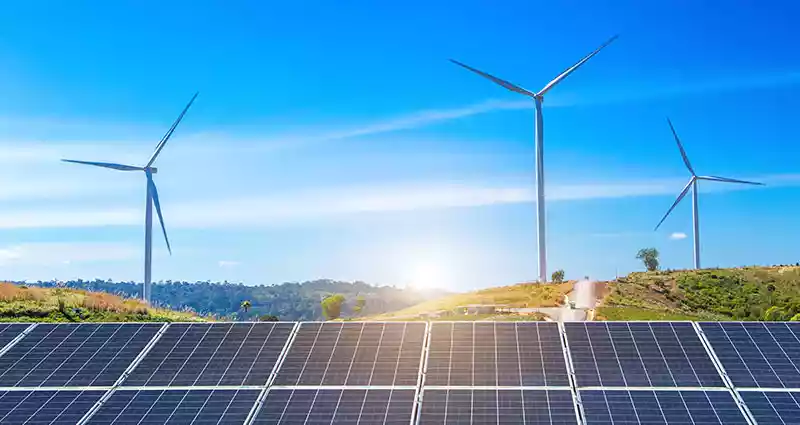
Global investment in the low-carbon energy transition totaled US$1.1 trillion in 2022, according to a report from research firm Bloomberg NEF.
Investment in low-carbon technologies also appears to have reached parity with capital deployed in support of fossil fuel supply.
The report said that almost every sector that it covered notched a new record level of investment in 2022, including renewable energy, energy storage, electrified transport, electrified heat, carbon capture and storage, hydrogen and sustainable materials.
Only nuclear power investment did not set a record, staying broadly flat, the report said.
Renewable energy, which includes wind, solar, biofuels and other renewables, remained the largest sector in investment terms.
It hit a new record of US$495 billion committed in 2022, up 17% from the year prior.
Electrified transport, which includes spending on electric vehicles and associated infrastructure, came close to overtaking renewables, with US$466 billion spent in 2022, a 54% increase year-on-year, the report said. And while hydrogen is grabbing a lot of headlines, it received the least financial commitment at US$1.1 billion in 2022 (0.1% of the total).
From its small base, however, hydrogen turned in the fastest rate of growth as investment more than tripled from a year earlier.
- Renewables steal limelight in French polls
- Why we do what we do at AMH: Mafukidze
- Why we do what we do at AMH: Mafukidze
- News in depth: Zimbabwe’s push for shift to renewable energy sources gathers momentum
Keep Reading
Data showed that China was by far the leading country for attracting energy transition investment.
It accounted for US$546 billion or nearly half of the global total. The U.S. was second at US$141 billion. The EU, meanwhile, would have been second if treated as a single bloc, at US$180 billion. Germany retained its third place, while the UK dropped one place to fifth as France climbed to fourth.
The report also estimated global fossil fuel investments, including upstream, midstream, downstream and unabated fossil power generation.
The total was estimated at US$1.1 trillion in 2022, on par with the energy transition investment total.
The report said this was the first time that global energy transition investment matched fossil fuel investment, and came despite fossil investment growth triggered by the energy crisis.
The report said that despite the 2022 results, global investment in lower-carbon technologies remains “woefully short” of what is needed to confront climate change. For the world to get on a 2050 “net-zero” CO2 emissions trajectory, such investment must immediately triple, the report estimated.
Including the additional US$274 billion invested in the power grid, energy transition investment hit US$1.38 trillion in 2022.
By comparison, the report said the world must invest an annual average of US$4.55 trillion for the rest of the decade to get on track under what Bloomberg calls its “Net Zero Scenario.”
The report also found that climate-tech corporate finance totaled $119 billion in 2022.
Such investments include new equity financing raised by companies in the climate-tech space, either from public markets or private investors.
The figure represented a 29% drop from the year before, driven entirely by a fall in public share offerings during what the report said was a “challenging year” in global equity markets.
Despite the turmoil, venture capital and private equity financings “held up well,” growing 3% on the year. Clean energy factory investment grew to US$78.7 billion in 2022, up from US$52.6 billion in 2021, the report said.
Manufacturing facilities for batteries and related components formed the largest share of this at US$45.4 billion. Solar factories attracted US$23.9 billion. China accounted for 91% of manufacturing investments in 2022, despite efforts from other countries to capture more of the global clean energy opportunity. The U.S. in particular has seen a wave of announcements of new or expanded factories for clean energy technologies in recent months.
Those announcements were not represented in the report’s figures, which only accounted for successfully commissioned factory projects.










